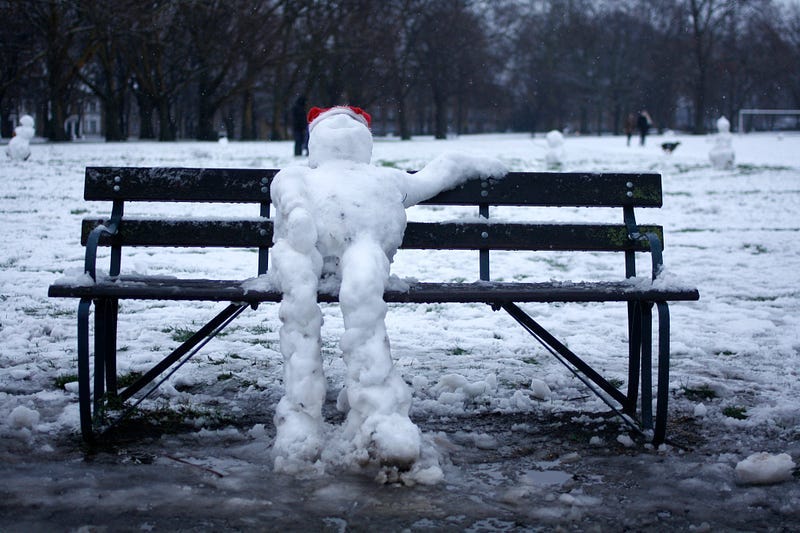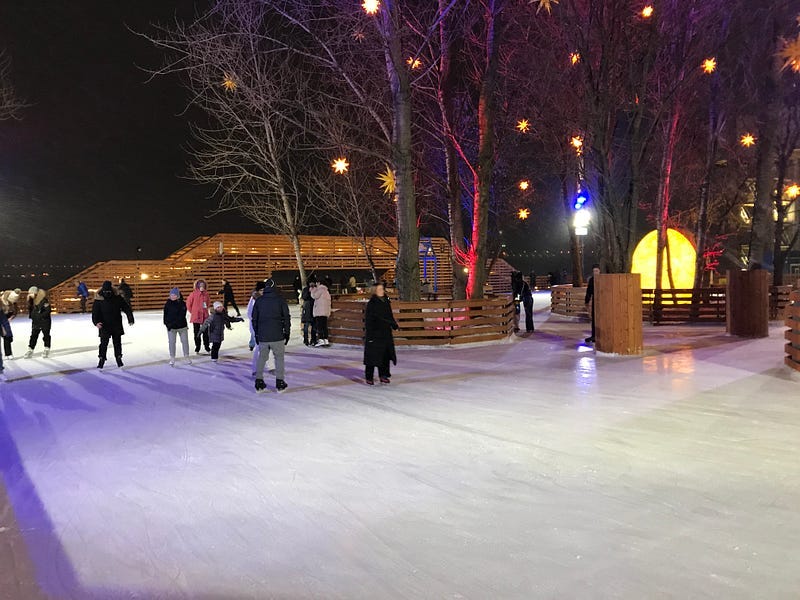Kazakh President Refuses to Speak Russia with Putin
Oh, how things have changed for Putin and Russia since he decided to invade Ukraine

The day before, Vladimir Putin hit his head and came up with the “good idea” to invade Ukraine, I was ice skating at a lovely outdoor rink near a repurposed port in St. Petersburg, Russia. With the Gulf of Finland looming vast, icy, and white over my shoulder, each tour around the rink presented me with a magical view of winter at its finest. I love winter. I love snow.
The next day happened, and it will soon be 730 “next days” since. Hundreds of thousands in Ukraine and Russia are dead for no reason whatsoever but to appease the caprice of a sick and greedy old man. When Putin launched what was supposed to be a three-day jaunt into Kyiv, Russia was considered a serious regional power controlling much of the “near abroad,” as the former Soviet Union is called, and a leading power in the world.
Month by month, however, Russia’s military has been proven to be a paper tiger. The officer corps is a mess of incompetency and cowards. Russian soldiers demonstrate little more in the way of professional proficiency than their great-grandfathers did before them in World War II. The most successful military tactic on display by Russia is the meat wave.
With each passing defeat, each sunken ship and shot-down helicopter, Russia has demonstrated itself to be a laughing stock among serious nations. Russia’s strategic defeat has been recorded, but Ukraine does not have the manpower or firepower to complete the task of pushing them out of the occupied territories, so this war of attrition goes on.
Russia has been isolated culturally and socially. Russia is an international pariah, and well over a million have abandoned the country along with most Western businesses. Vladimir Putin has set Russia back 30 years in terms of inclusion with the world, and the isolation will continue for generations more. It is all sad and regrettable.
Yet, some changes make me smile.
The president of close Russian ally Kazakhstan shocked Kremlin officials when he opened his speech in his native Kazakh rather than Russian.
Russian officials were left scrambling for translation devices after President Kassym-Jomart Tokayev began his remarks during Vladimir Putin’s visit to the central Asian country.
Putin had been hoping to cement ties with his ex-Soviet neighbor and major economic partner in the midst of tensions with the West over Ukraine.
But many are suggesting that Tokayev’s choice to speak Kazakh for the first time in a meeting with Putin is a sign that all is not well between the two nations (Putin Ally Flusters Officials).
Russia’s weakness, thanks to its failings in Ukraine, has finally created the opportunity for the independent nations of Central Asia to put Putin and Russia in his place. Having been forced to tolerate Russian racism and disrespect for the last three decades after the collapse of the Soviet Union, they now realize that Russia can do nothing to punish them for demanding to be treated as equals.
Oil-rich Kazakhstan has maintained a delicate balancing act with Moscow — preserving its economic ties but refusing to recognize the annexed regions of Ukraine.
But this conference marks the first time Tokayev has spoken his own language in a meeting with Putin.
In August, Tokayev also spoke his own language whilst the president of Azerbaijan chose to speak his native language — rather than the two speaking Russian together (Putin Ally Flusters Officials).
When the Kazakh president and the president of Armenia chose, for the first time, to both speak in their native languages as opposed to the former lingua franca Russia, it was a clear signal to the Kremlin that “the bad old days are over.” Russia would no longer be considered the great but harsh benefactor from the North but rather just one of the many Soviet republics that became independent nations in 1991.
Putin’s arrogance and Russian incompetence have unraveled Russia’s formerly most important resource: implied power. Ukraine has shown that Russia can be taken on and defeated. Putin cannot afford hostile relations with the nations in the near abroad, and so he has little choice but to sit with his puffy hands folded and listen as men he knows can speak fluent Russia mock him his weakness with their national languages.
How the times are changing, you know? Russia is at its weakest since shortly after the civil war in the early 1920s. Whether or not this is good still has yet to be seen, but it is nice to see Russia humbled.




It is good, Mr. Kean. It may not be easy and the future may be very difficult for all involved, but the unraveling of the Muscovite myth is definitely good
It is good. Because these nations can now shape their future much more and with less adherence to the Russian whims.